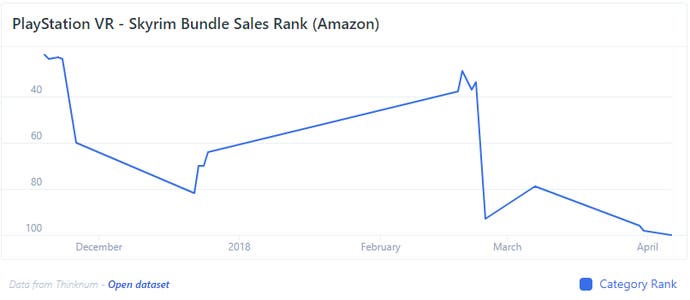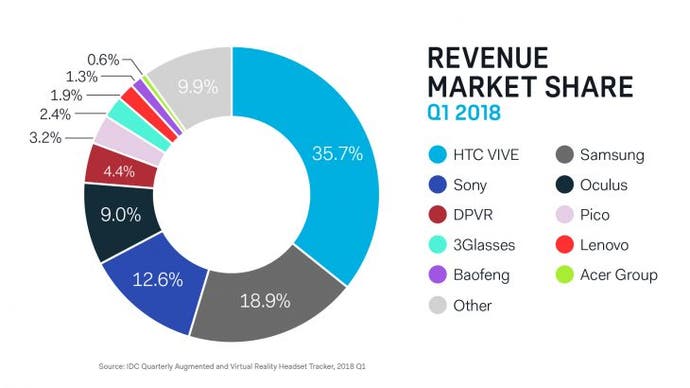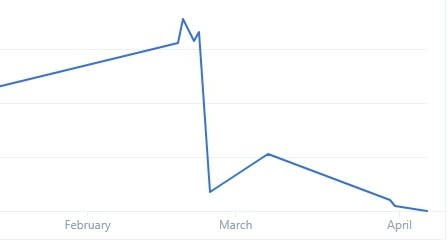HTC Vive hits back following "VR is dying" claims
But fails to reveal sales numbers.
HTC Vive has hit back following claims "VR is dying".
In a blog post, HTC insisted VR had a bright future despite sales dropping off - but it failed to reveal a sales figure for its own headset.
The blog post was sparked by an article on Digital Trends, which looked at sales numbers as tracked by Amazon sales rank data at Thinknum. This data shows sales for all four major players (Sony for PlayStation VR, HTC for Vive, Oculus for its new Oculus Go and Samsung for its Gear VR) have fallen dramatically.
Only Sony's PlayStation VR headset shows sign of life, according to the report. But it's damning with faint praise: "That's not a total disaster," Digital Trends said, "rank 100 among all video game products isn't so bad - but it certainly doesn't indicate the headset is flying off shelves. Gamers are modestly interested, at best."

HTC, clearly annoyed by the report, said sales of the Vive dropped off because it sold out.
"Vive has paced at its highest sales velocity of all time, for weeks on end, and we sold out," HTC said.
"For a consumer electronic product in its third calendar year, this continued trajectory is nearly unheard of.
"Don't worry, though: we are ramping up production of the original Vive and units will continue to roll out to online and retail over the coming weeks."
HTC went on to say VR will eventually grow in popularity.
"More and more, as people begin to understand the possibilities for virtual applications, word of mouth will grow, and sales will continue their upward trajectory.
"In the VR industry, it's important to not only move units, but to ensure that we have a growth path for customers and our business over time."
HTC then quoted data from intelligence firm International Data Corporation (IDC), which analysed VR revenue share to show Vive as the market leader.

However, HTC failed to disclose a sales figure for the Vive (Sony has said PSVR has shifted 2m units since launch), which is odd given earlier in the blog post the company complained about a lack of VR sales data, saying: "Premium VR has solidified and ramped up over time, yet the major players have not released sales figures to substantiate the market momentum."
The relative popularity of VR has been a point of contention ever since Facebook forked out $2bn for Oculus and Valve and Sony entered the fray with fancy tech of their own.
In May 2018, Sony said that while the PSVR specifically was growing, growth for the overall VR market was "below expectation".
Earlier in May, Oculus VR's Matt Conte told Eurogamer sister site GamesIndustry.biz the size of the VR market in 2018 is smaller than it had hoped.
"I'm not going to mince words: VR is still small," he said in a warning to developers. "There's not as many headsets out there as we thought there might be a couple of years ago. It's growing, and it's actually growing at a pretty decent pace, but every decision that you make you should be thinking about: How does this get my title into the most users' hands as possible?
"Some people find it weird that we tell them to ship on all platforms. We don't want exclusivity. We want VR to thrive. But VR is a niche, and you don't want to be a niche within a niche. Ship everywhere: Oculus, PlayStation VR, Steam, mobile, if you can. Do whatever you can to get as many eyes on it as possible."
HTC, at least, sounds bullish on the future of VR. "It takes time to launch a new technology," the company said.
"We're glad you're here and have invested in this journey with us."

